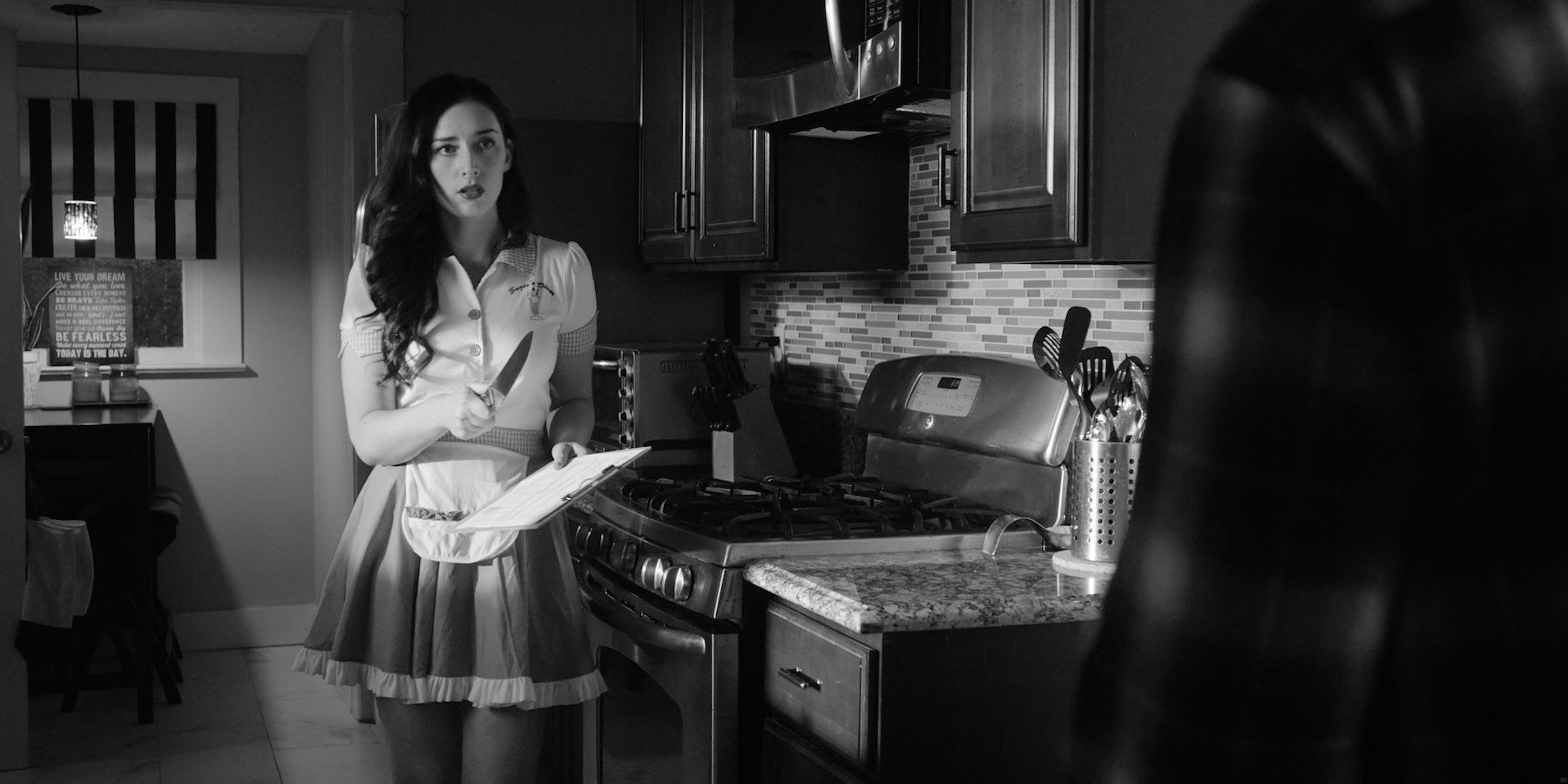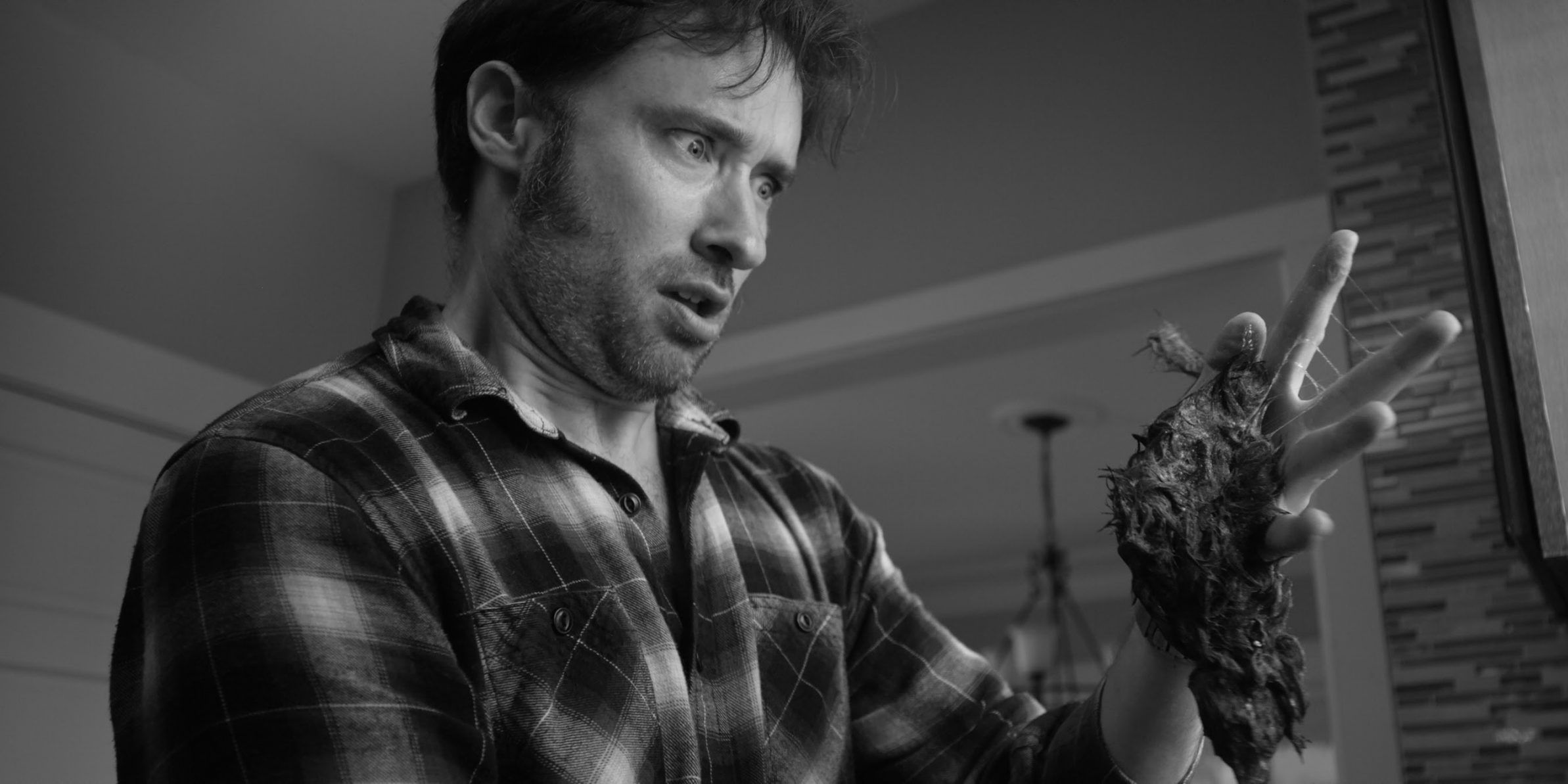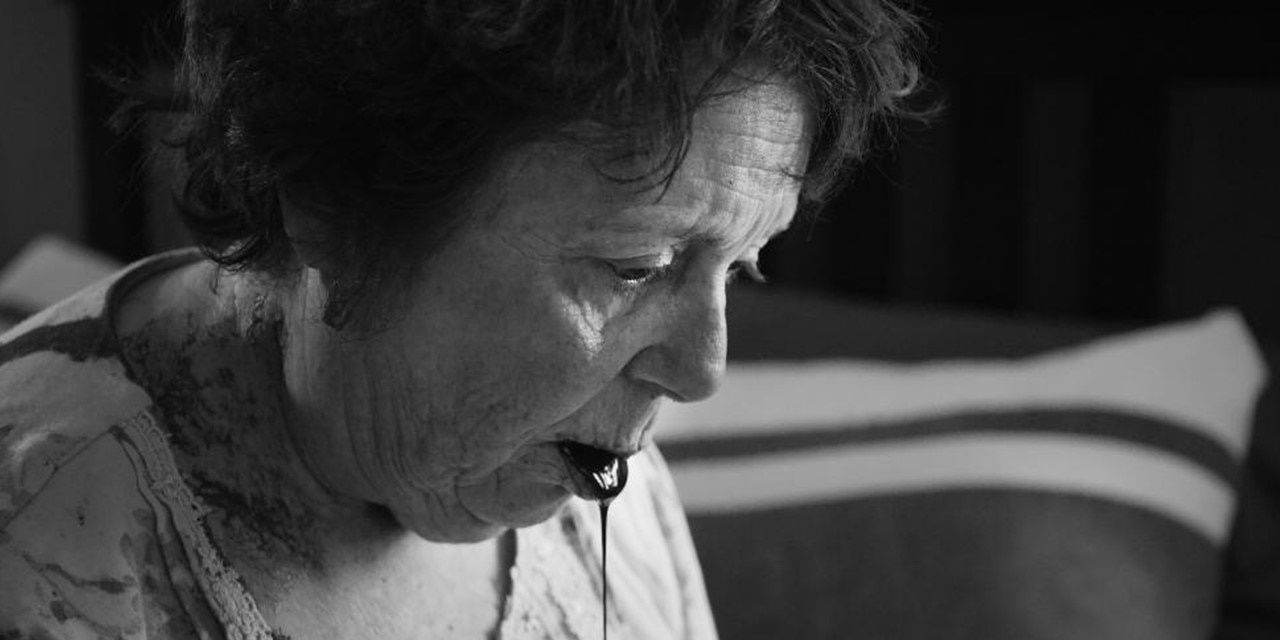When it comes to horror films, history has proven that some of the most compelling stories can be made with a can-do attitude. Halloween was made on a meager $300,000 budget and remains a cult classic continuously churning out sequels to this day. Movies like The Blair Witch Project threw the idea of perfect camera work out the window. So it's no surprise that when two filmmakers agreed to make a film in five weeks on a dare, from inception to finished product, they actually pulled it off.
There were a lot of factors in place that could have made Dementia II a mediocre film that no one would see. But despite the extreme time crunch, low budget, and limited crew, somehow directors Matt Mercer and Mike Testin made a film that is not only watchable, but downright enjoyable.
The dare started when Josh Goldbloom, founder of Chicago horror festival Cinepocalypse, challenged film producer JD Lifshitz. Goldbloom's rules were simple: if he could deliver a feature-length film, which had to be titled Dementia II, in the five weeks left before the festival, he would guarantee his film a midnight screening. Lifshitz agreed to the dare and his first move was to seek out Testin, the director of the first Dementia movie, followed by Mercer, who he had previously worked with. The two directors quickly produced a script. Then they called in a few favors from friends to play the characters and provide the home they primarily filmed in.
It's intriguing to watch a finished product knowing the story behind it, but Dementia II could stand as a strong horror movie without any of the backstory. The plot, which isn't connected to the first Dementia, centers around Wendell, an ex-con handyman (Mercer), who must take a job for an unstable, elderly woman (Suzanne Voss) to avoid violating his parole.
Wendell sees the signs that the woman, also named Suzanne, struggles with memory loss and has no qualms taking advantage of her. He smiles as she hands him $50 tips (she thinks they're $10 bills), and goes right along with pretending to be her recently deceased husband. As the day progresses it's clear that something is very wrong with Suzanne, whose demeanor quickly and dramatically bounces between sweet and threatening. The more Wendell indulges Suzanne's memories and requests, the more he realizes he may be dealing with something far more sinister than just run-of-the-mill dementia.
The movie was filmed in black and white, a move that can easily spill into gimmick territory. In the hands of Mercer and Testin, it actually serves the overall tone well and lifts the sense of dread in all the appropriate places. It may have been for practical and budgetary reasons since the (many) bloody moments in the film were made using Hershey's syrup, but it pays off.
Aside from the well-written script, the acting stands out as the magic that ties the whole project together. Voss is unforgettable and haunting as Suzanne and it's even more impressive that she managed to film while having to bounce back and forth from her day job and the set. Mercer does his best to keep up with Voss. He manages to make the audience care for him even though he sometimes lacks morals and, time and time again, takes advantage of Suzanne. He balances those moments with soemtimes genuinely caring for Suzanne's feelings and is the audience's window to watching the madness unfold.
The audience at the Cinepocalypse festival agreed, because when the film premiered it was extremely well received. So much so that it went on to screen at other, bigger festivals until it was accepted into Spain's Sitges Film Festival, one of the biggest horror and fantasy festivals in the world.
If its recent ascent to surprising fame isn't already evident, Dementia II is also currently rated 80% on Rotten Tomatoes. Despite all its well-deserved acclaim, what truly makes the film memorable is how humble it remains in presentation while still delivering scares and a surprising amount of laughs.
It's obvious that the film was made on a modest budget, but that might be why it turned out so good. There are no fancy CGI effects, extra locations, or complicated camera shots. The film is forced to rely on a well-written script, solid acting, and a simple but effectively used set.
A point could be made that the film comments on ageism or capitalism, but there's no need to dig further. It doesn't take itself so seriously, and neither should the audience. In a time of flashier films like Army of the Dead with its zombie animals, it stands out as fun in its simplest form.
Dementia II is now available on iTunes.



